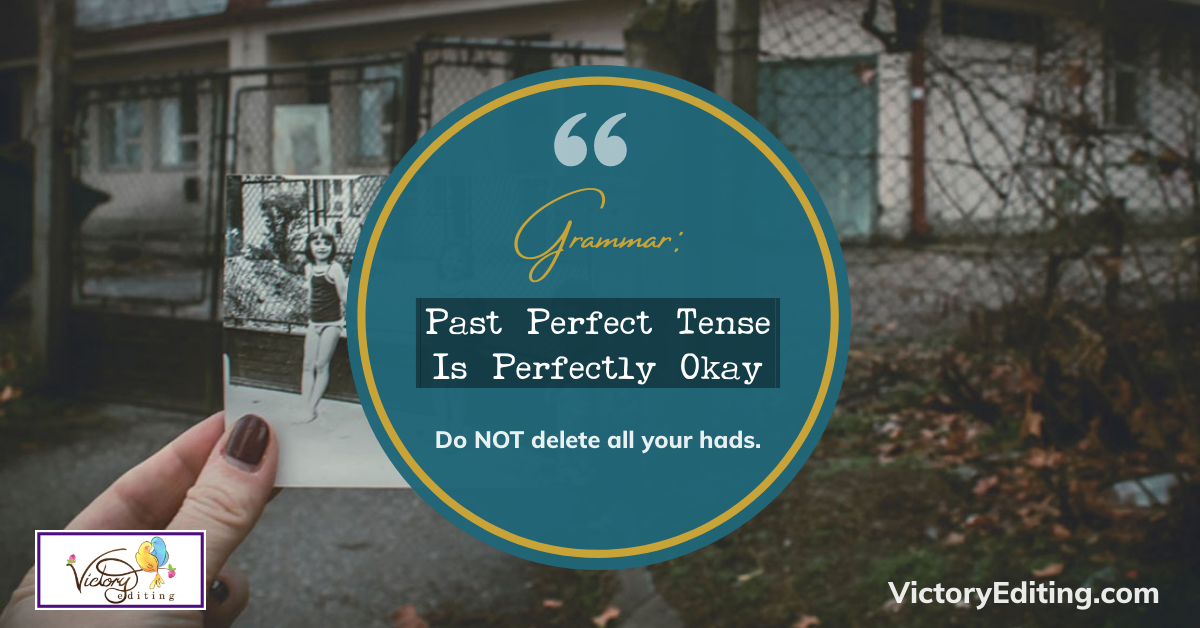I had a question from a friend tonight about the had in past perfect tense. She was wondering if she should remove the hads as she “dislikes unnecessary words.”
This is the sound of tires squealing and my jaw hitting my desk.
Had is not an unnecessary word.
Not to pick on my friend Betty (not her real name), but had is not an unnecessary word. To say it is implies that we don’t need no steenkin’ past perfect tense and it’s just there for decoration, or maybe to keep the other tenses acting right. They tend to get uppity if someone’s not riding herd on them. At any rate, I answered her question and then moved on to a manuscript I’m working on, and I found myself adding had in places. That’s when I stopped and hopped onto Facebook to type up this note. Not that I’m procrastinating or anything—of course not!
Moving on! Consider these two sentences:
- They visited their grandma.
- They had visited their grandma.
Those two sentences are fundamentally different. The first sentence implies they just visited or maybe even that they’re still there. The second sentence, however, implies that the trip is over and has been for a while—anywhere from months to years.
Remember, most of our books are written in past tense, so we need a way to differentiate between what’s going on now and what’s taken place in the past. Think recent past vs. distant past.
To use two more examples:
- She talked to him implies she’s doing it at the current time of the story (assuming the story is written in past tense).
- She had talked to him suggests the conversation is over and done with.
Caveat:
You can trim the “had” if the timeline is implied in some other way. For instance: She talked to him last night vs. She had talked to him last night. You’d be fine to take out the had in that case. 🙂
- She thought she was… If you say she thought she was, that implies she’s thinking it right now.
- She had thought… Now the meaning shifts. She had a preconceived notion she’s been disabused of.
In action:
- She thought he was a nice guy. Okay – that’s her current thought process.
- She had thought he was a nice guy. The implication is that she no longer does. In fact, I would expect that sentence to be followed with “But now she knew he was a jerk.”
In conclusion:
Sure, trim the fat, but be careful you’re not changing the timeline of the narrative or your meaning by over-judicious pruning of had.
Photo by Anita Jankovic on Unsplash
Hi! I’m in the process of putting together a grammar class. You can click below to see what classes are coming down the pike and to sign up to be notified when they launch. I can’t wait to see you there!



“ She talked to him implies she’s doing it right now.”
No. It places the event in past.
If she is presently talking to him, it would be “She is talking to him.”
Hi, Horace. Ordinarily you are correct. But you missed the context here. In the sentence directly in front of the examples, I state:
If your base tense is in the past, then you wouldn’t use present tense for the narrative. Ever. Everything is taking place in the past. That is why you need to distinguish between the present tense of the story (which is writtten in past tense) vs. events which took place previously. Let me know if you have additional questions.